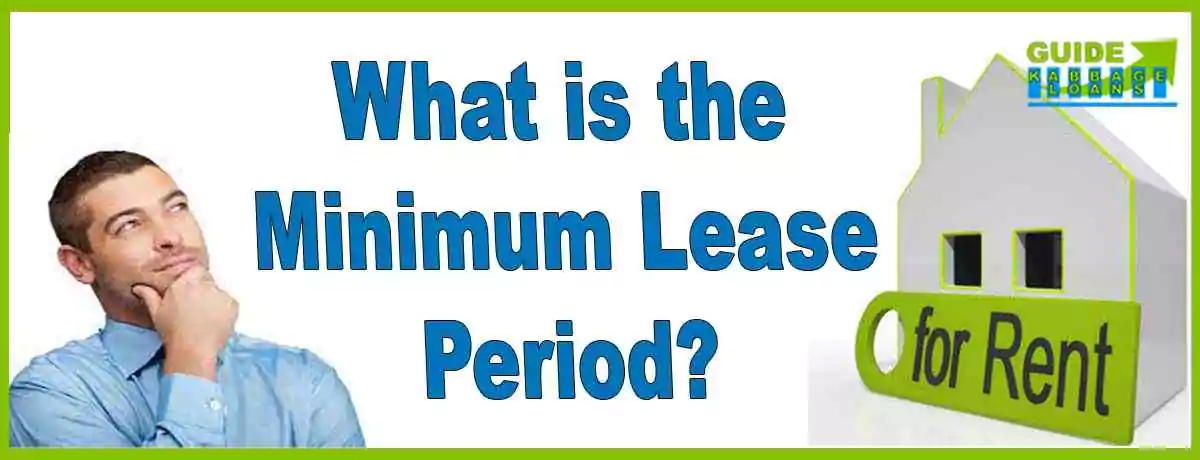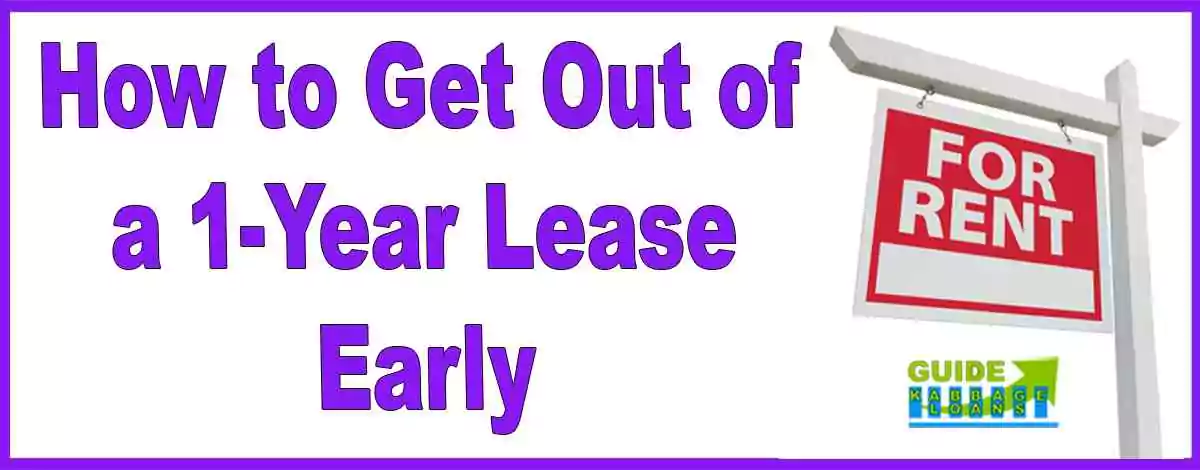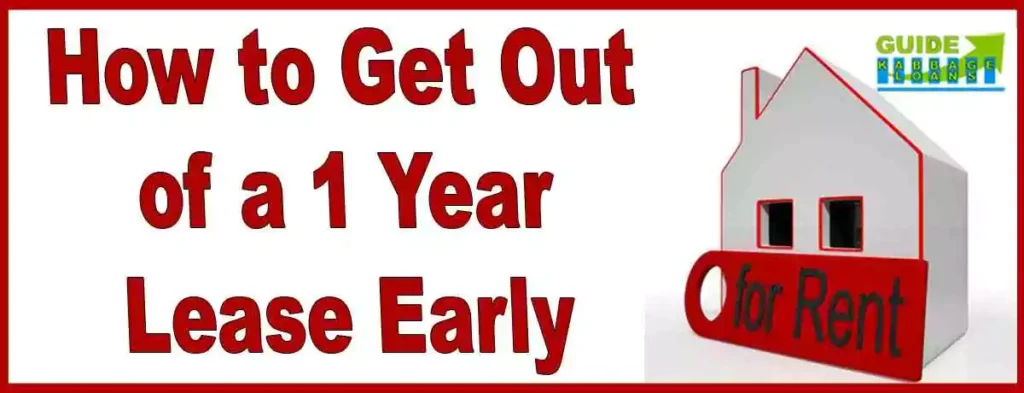Leasing a property is a common arrangement for individuals looking for a place to live or for businesses seeking a physical location. Lease agreements typically come with fixed terms, and in the case of residential leases, a 1-year lease is a common option. But what happens if you need to get out of a 1-year lease early?
This article will provide a comprehensive guide on navigating the complexities of breaking a 1-year lease, focusing on understanding the rules and regulations governing this process. The lease agreement is better for both the landlord and the tenant. But sometimes such an emergency comes, so we have to break this 1-year lease agreement. There are many different paths to this.
What is the Minimum Lease Period?
The Minimum Lease Period is often referred to as the “minimum lease term” or “minimum rental period”. This is the specific duration mentioned in a rental agreement where both the tenant and the landlord have agreed not to vacate the property or end the lease before this fixed time.

The length of the minimum lease period can vary and is typically determined by mutual agreement between the landlord and the tenant. It can range from as short as 1 month to as long as five years or even up to ten years, depending on what is specified in the lease agreement. The period mentioned in the agreement as the minimum lease term is legally binding, and both parties are obligated to adhere to it.
What is the Maximum Period of Lease?
In the U.S., how long you can lease something (like a house or land) depends on the type of lease and where you live. Here’s a simple breakdown:
Residential Leases (Renting a Home)
- Most leases for homes are for 12 months, but they can be for 6 months or month-to-month.
- There is usually no limit on how long a lease can be but leases longer than a few years are not common.
Commercial Leases (For Businesses)
- Leases for businesses usually last between 3 to 5 years, but some can go up to 10 or even 25 years.
- In some states, there’s a maximum limit of 99 years for commercial leases.
Land Leases
- Leases for land can be longer, often up to 99 years.
So, while most leases are for 1 to 5 years, 99 years is often the longest a lease can be for land or businesses in many states.1
What is the Rule of Lease?
The “Rule of Lease” essentially refers to the fundamental principle that a lease is a legally binding contract between a tenant and a landlord. It outlines the terms and conditions that govern the tenant’s occupancy of the apartment. Once both parties, the tenant, and the landlord, have signed the lease agreement, it becomes a fixed and unalterable document.
| Rule of Lease | Explanation |
|---|---|
| Lease is a Contract | A lease is a legally binding agreement between the tenant and the landlord. also specifying the terms and conditions for renting the apartment. |
| Fixed Terms | Once both the tenant and landlord sign the lease, the terms are set and cannot be altered unilaterally. |
| Agreement for Changes | Any modifications to the lease require the consent of both parties – tenant and landlord. |
| Changes in Writing | For changes to be valid, they must be documented in writing, ensuring clarity and avoiding disputes. |
| Mutual Agreement | Both the tenant and landlord must agree to the proposed changes, and their consensus should be evident in the written documentation. |
What is a 1-Year Lease Agreement?
A 1-year lease agreement is a legally binding rental contract specifying a one-year fixed term. By entering into this agreement, you commit to residing in the rental property for the entire duration of that year. It’s important to understand that during this time, you are obligated to comply with the terms and conditions outlined in the lease, including paying rent regularly and following any rules or regulations set by the landlord.
Can You Get Out of a 1-Year Lease Early?
Getting out of a 1-year lease early can be challenging but is possible under certain circumstances. It typically involves either negotiating with the landlord or invoking specific legal protections provided by local or state laws. This may vary from state to state throughout the USA.

How to Get Out of a 1-Year Lease Early:
Getting out of a 1-year lease early requires careful consideration and adherence to specific steps. Here are 3, methods:
1. Negotiate with Your Landlord
Open communication is key. Discuss your situation with your landlord and explain why you need to break the lease. Be polite and transparent.
- Offer to pay an early termination fee (if mentioned in your lease).
- Offer to help find a new tenant to minimize the landlord’s loss.
Why It Works: Many landlords prefer a cooperative solution over going through legal or financial disputes.
2. Sublet the Property or Find a Replacement Tenant
If your lease allows subletting, you can rent out the property to another person for the remainder of the lease term.
Steps:
- Confirm with your landlord if subletting is allowed.
- Advertise the property on rental websites or local groups.
- Create a sublease agreement and ensure the new tenant meets the landlord’s criteria.
Why It Works: This lets you fulfill your rental obligation without staying, and the landlord continues receiving rent.
3. Check Legal Protections Under Local Laws
Research tenant laws in your state. Many states have legal grounds for early lease termination, such as:
Military Deployment: Federal law allows service members to terminate leases if they receive relocation orders.
Unsafe Living Conditions: If the property is uninhabitable and the landlord fails to address the issue, you may have a legal reason to break the lease.
Domestic Violence: Some states provide protection for victims of domestic violence.
Medical or Financial Hardship: Certain states allow lease termination for severe personal hardships.
Steps:
Review your state’s tenant rights.
Gather the necessary documentation to support your claim.
Notify your landlord in writing with the required evidence.
Why It Works: These legal protections are designed to ensure fairness in extraordinary situations.
How Long After Signing a Lease Can You Back Out?
Once you sign your name to a lease agreement, you’re legally bound by its terms and conditions. Backing out of the lease after signing it can have significant consequences. It’s essential to understand that the landlord relies on your commitment and the rental income it provides. If you decide to back out before moving in, the landlord will need to begin the process of finding a new tenant, which can be time-consuming and costly.
In most cases, you will be responsible for paying the rent until they successfully find a new tenant. It’s crucial to take signing a lease seriously and be fully prepared to honour its terms to avoid potential financial and legal complications.
What Happens if a Tenant Breaks a Lease in BC?
In British Columbia, as in many other places, breaking a lease early may have financial and legal implications. Tenants may be required to pay rent until a new tenant is found, forfeit their security deposit, face early termination fees, or even legal action by the landlord. But if you convince your landlord of this then no action will be taken against you and you can easily break the lease.
How Much Does it Cost to Break a Lease in NC?
The cost of breaking a lease in North Carolina can vary depending on the terms of the lease agreement and local laws. Some leases may specify the financial penalties for early termination, while others may require tenants to continue paying rent until a new tenant is found.
But sometimes if the landlord has already mentioned in the agreement, then the landlord can charge you the full rent for the period for which the lease agreement has been made.
What Happens if I Break My Lease in NC?
North Carolina also has similar rules as British Columbia. Therefore, if you break a lease in North Carolina, you may have to pay some penalty, or legal action may also be taken against you. If the landlord has already mentioned that if the lease is broken midway, you will have to pay the full rent for the period for which the lease agreement is made, then you may have to pay the rent for the entire time.
How Can I Break My Apartment Lease Without Penalty in NC?
In North Carolina, there are specific conditions under which you can break your apartment lease without facing penalties. Here’s how you can do it:
1. Communicate with Your Landlord
Talk to your landlord and explain your situation. If they agree, you can break your lease without penalty.
2. Legally Justified Reasons
You can break your lease without penalty for these reasons:
- Domestic Violence, Sexual Assault, or Stalking: Provide written notice and documentation like a restraining order or police report.
- Active Military Duty: Under the Servicemembers Civil Relief Act (SCRA), provide written notice and your military orders.
- Unsafe Living Conditions: Notify your landlord in writing if your rental violates health or safety codes. If they don’t fix the issue, you can terminate the lease.
- Landlord Harassment or Privacy Violations: Document all instances and notify your landlord.
3. Provide Proper Notice
Give written notice to your landlord, explaining why you need to break the lease and include any supporting documents.
4. Consider Subletting
With your landlord’s permission, you can sublet your apartment if legally justified reasons don’t apply.
5. Negotiate a Buyout
Negotiate a lease buyout with your landlord, which may involve paying a fee to end the lease early.
Conclusion:
Breaking a 1-year lease early can be a complex process that requires careful consideration and adherence to legal and contractual obligations. By understanding your lease terms, communicating effectively with your landlord, and exploring legal protections, you can navigate this challenge more smoothly. Always consider seeking legal advice to ensure your rights are protected and to find the best possible solution for your specific situation.
FAQs
Can I sublet my apartment with a 1-year lease?
It depends on the terms of your lease agreement. Some leases allow subletting, while others may prohibit it.
Do I need to provide a reason to break a 1-year lease early?
You may need to provide a valid reason if it's specified in your lease or required by local laws.
Is a 1-year lease common for residential rentals?
Yes, a 1-year lease is a common choice for residential rentals, providing both parties with a fixed timeframe.
Thanks for your visit.
(How to get out of a 1-year lease early?)
Disclaimer: This article provides general information regarding lease agreements and the process of breaking a lease. It is not intended to serve as legal advice. For specific legal advice about your situation, please consult with a qualified attorney or legal expert.





